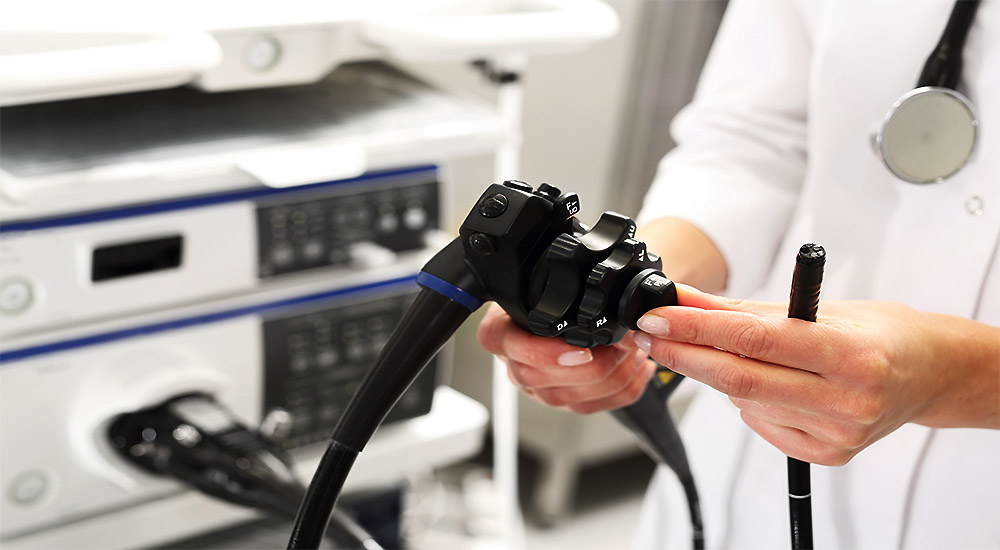Gluten Intolerant? Don’t Expect Your GI Doc to Understand

Why Are Gastroenterologists Ignorant of Gluten Intolerance?

From positive tests that were misdiagnosed, to a refusal to even run a test for a suffering a patient, the stories have run the gamut. Do realize that we are not talking about a general practitioner or family doctor, but rather a gastroenterologist – someone whom we expect to be well versed in the area of digestive and intestinal problems.
A New Study Sheds Light on the Problem
It was, therefore, gratifying to see a new study just last week that revealed exactly what the problem is… The Journal of Clinical Gastroenterology (Sept 28, 2011) published an article titled, “Do Gastroenterologists Adhere to Diagnostic and Treatment Guidelines for Celiac Disease?”.
The aim of the researchers was to discover if there was significant variation in clinical guidelines and practices between gastroenterologists and academic experts in celiac disease. One hundred sixty-nine practicing gastroenterologists and twenty-two experts were surveyed. There were many differences observed between the two groups.
Some of the most significant were:
1. The experts consistently endorsed using screening for celiac disease in patients suffering from diseases known to be associated with gluten intolerance, namely type 1 diabetes, Down syndrome, and Turner syndrome.
2. Experts also were adamant about screening the relatives of known celiacs.
3. Lastly, the experts also believed in the utilization of screening for non-digestive or ‘atypical’ presentations of celiac disease, including delayed puberty, infertility, autoimmune hepatitis (a liver disease), and primary biliary cirrhosis (also a liver disease).
The conclusion of the researchers was that “there is significant disagreement between non-experts and experts in diagnosis and management of celiac disease”. While it may seem a ‘no-brainer’ to think that an expert would know more than a non-expert, permit me to reiterate that we are speaking of doctors who are self-proclaimed ‘experts’ in the area of digestive health.
Celiac disease falls squarely in the middle of that arena. The other unfortunate aspect of these results is that the ‘experts’ are doctors doing research and, for the most part, not involved in patient care.
Does “No Drug” Mean “No Diagnosis”?
In my opinion, one of the reasons that our GI docs are so poor at diagnosing celiac disease is that there is no drug available to treat it. We are heavily pharmaceutically driven in this country and when that tool is not available, a health condition such as celiac falls off the radar of most practicing clinicians.
Unfortunately, when an individual suffering from undiagnosed gluten intolerance sees a GI doc, they feel that they ‘have’ gone to an expert. When that doctor pronounces them ‘fine’, or suffering from ‘IBS’ or ‘stress’, they believe that diagnosis is accurate. Why? Because the expert said so. I have long suspected the exact outcome that the above study revealed, but it’s good to get corroboration.
Obviously “Increased Awareness” Has a Long Way to Go
It starts to explain why 95% of those suffering from celiac disease remain undiagnosed. The number of gluten-sensitive patients who remain oblivious to the ill effects gluten is creating on their health is likely higher still.
Here at Root Cause Medical Clinic, we are experts in this field. I’m not saying that we’re perfect, no one is, but you won’t leave here without a correct diagnosis if I have anything to say about it!
There are Some “True” Experts
There are a handful of us around the world that are committed to increasing awareness of gluten intolerance. My good friends include a pediatrician in New Zealand, medical doctors in research centers, and clinical nutritionists educating fellow clinicians. We are not many, but we are passionate about what we do.
I and my team are here to help you and ensure that if gluten intolerance is playing a role in your ill health that it is discovered and addressed correctly and swiftly. Please call upon us to help. It is why we do what we do. Our destination clinic sees patients from across the country and internationally. We would be delighted to help you, your friends, and your family.
Do you need help with your health?
We have the diagnostic and testing tools, the clinical experience, and a different medical approach to discovering the root cause of why you have the symptoms that are bothering you. As long as you are ready to make some dietary and lifestyle changes, we can help you. We will "hold your hand" through the changes, step by step, to make each step an easy one. We are located in Clearwater, FL, at 1000 S Ft Harrison, at the corner of Ft. Harrison Ave. and Magnolia St. There is plenty of parking space directly accessible from Ft Harrison. If it is not convenient for you to come to Root Cause Medical Clinic, we offer telehealth/telemedicine consultations to residents of certain states. Call us for details.
Contact us for a Consultation – Call 727-335-0400

Dr. Vikki Petersen DC. CCN
Founder of Root Cause Medical Clinic
Certified Functional Medicine Practitioner
Dr Vikki Petersen is a public speaker, author of two books, several eBooks and creates cutting edge content for her YouTube community. Dr Vikki is committed to bringing Root Cause Medicine and its unique approach to restoring health naturally to the world.
Ask a Doctor
Have a health concern you'd like to speak with a doctor about? Or just want clarity on a subject? Ask Us!


